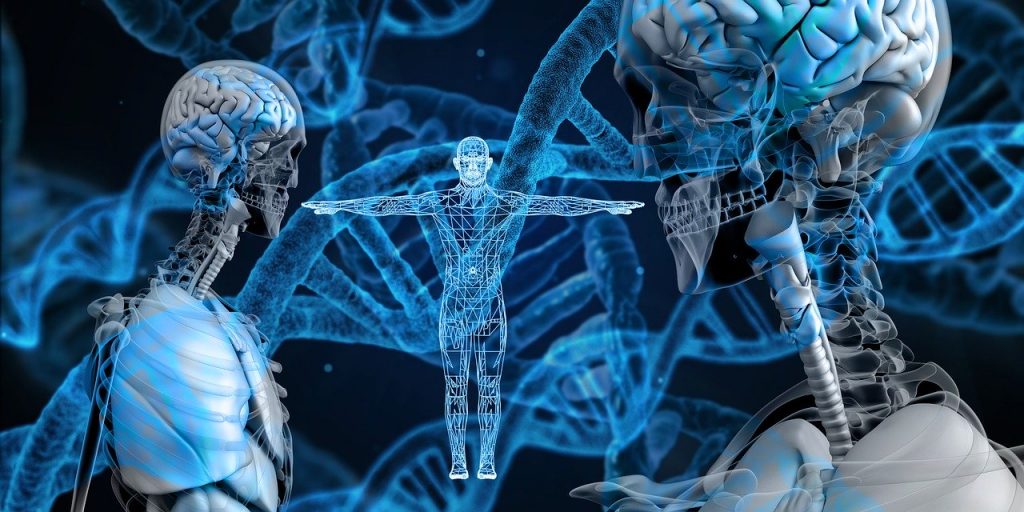Peptides, which are molecules made up of a short chain of amino acids, are an increasingly popular performance enhancer for fitness enthusiasts seeking lean muscle growth. But why? In this blog post, we will delve deeper into the world of peptides and explore how they can be used to enhance your muscle-building journey, as well as some side effects to keep in mind.
The Benefits of Peptides for Recovery and Muscle Growth
Certain peptides offer several benefits recovery and muscle growth. For example, using peptides has been shown to:
- Improved sleep. This is one of the roots of all of the benefits you will see below. Great sleep is important for everything from immune function to decreased recovery time to stimulating muscle growth.
- Improve immune function. The last thing you want is to get sick on one of your important training days. Peptides have been shown to improve your immune system to help your body fight off diseases.
- Reduce recovery time. Peptides can help you to reduce the amount of time it takes your body to recover, decreasing downtime for recovery and allowing you to train more.
- Stimulate muscle growth. Some peptides can boost the release of growth hormone that activates muscle recovery & growth, making your workouts more effective.
Popular Peptides for Lean Muscle Growth
There are many different types of peptides on the market, and some are more effective than others. Some of the popular peptides used for lean muscle growth include CJC-1295 and Ipamorelin.
Overview of Different Types of Peptides
CJC-1295
Many people use CJC-1295 because it boosts muscle tissue growth through protein synthesis. While it was originally used to fight diseases, many people now use CJC-1295 as a performance enhancer. Some of the potential benefits of using CJC-1295 peptides are increased mental clarity, increased bone density, and a more robust immune system.
Ipamorelin
Ipamorelin releases hormones into your bloodstream that have been shown to improve muscle growth, cognitive function, and memory. Ipamorelin is also associated with pain relief, which is helpful when dealing with workout-related injuries.
The Process of Peptide Therapy
Peptide therapy isn’t an over-the-counter medical regime. Rather, when done correctly, it involves a significant amount of consultative professional care, planning, and expert advice. Expect to undergo the following steps once you begin treatment.
Consultation with a Healthcare Professional
The first step before starting any TRT or peptide therapy is to consult with a licensed medical professional. Typically, you should ask your general physician (GP) to order a blood test to confirm that your testosterone levels warrant an intervention. Once your GP has confirmed that you’re eligible for TRT or peptide therapy, depending on their expertise or familiarity with hormone therapy they may refer you to a specialist, such as an endocrinologist.
Evaluating Health History and Symptoms
Although peptides are safe for most people and side effects are rare, it is good medicine to have your specialist review your health history before starting any treatment to make sure you are not at an increased risk of side effects.
Determining Appropriate Dosage and Administration Method
Once you’ve got the go-ahead to begin treatment, your doctor will calculate the right dosage to correct your deficiencies. This may entail some trial and error. It’s not uncommon to start small and then gradually increase the dosage if the drug is not working as intended. Most peptides are administered subcutaneously (injected into the skin using tiny needles) due to limited absorption in the gastrointestinal tract if taken orally. However, depending on the goal of the peptide, some may have a better effect if taken orally.
Monitoring Progress and Adjusting Treatment Plan
After you begin treatment, you will typically return to the doctor’s office for follow-up appointments and bloodwork every few months or so. Your doctor will adjust your dosage and frequency up or down depending on your body’s response to the treatment.
Importance of Working With a Healthcare Professional
Working with a healthcare professional is essential when using peptides for lean muscle growth. They can help evaluate your health history, recommend appropriate peptides and dosages, monitor your progress, and adjust the treatment plan as necessary. They can also provide guidance on proper administration techniques, potential side effects, and other important considerations when using peptides. Skipping this step may end up preventing the best possible results from peptide therapy.



